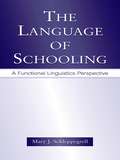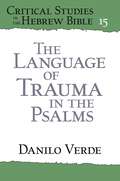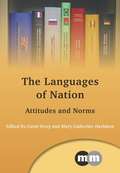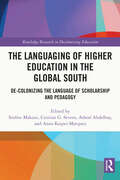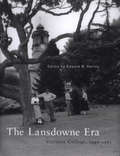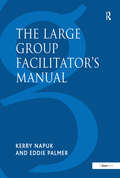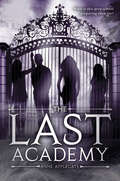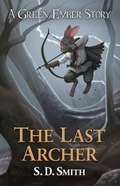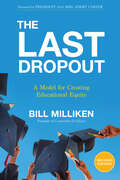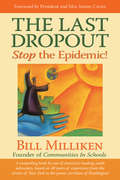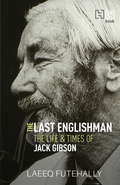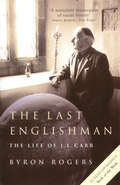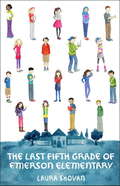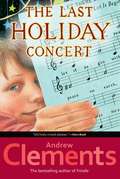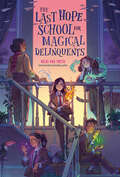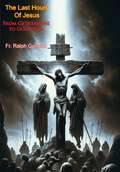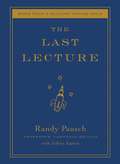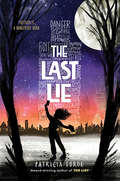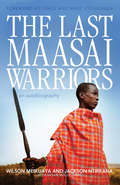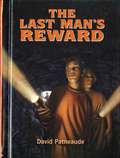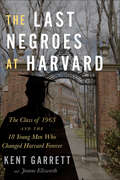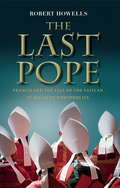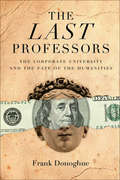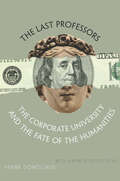- Table View
- List View
The Language of Organizational Styling
by Lionel WeeThe ways in which commercial organizations and service providers 'style' themselves - creating the image they wish to portray to their potential consumers - is a long-established area of research in the fields of sociology and business studies. However language also plays an important role in organizational styling, something which until now has been largely overlooked in the literature. This is the first book-length study of the linguistics of organizational styling, looking at the language and semiotic resources used by holiday resorts, pharmaceutical companies, restaurants and insurance companies in order to project their identities, and style themselves. It discusses in detail a number of case studies and presents an innovative take on the notion of style, as well as bringing together work from linguistics, business studies and sociology. This interdisciplinary book will be of interest to scholars and advanced students in sociolinguistics, and scholars of sociology and business studies.
The Language of Schooling: A Functional Linguistics Perspective
by Mary J. SchleppegrellThis book is about how language is used in the context of schooling. It demonstrates that the variety of English expected at school differs from the interactional language that students use for social purposes outside of school, and provides a linguistic analysis of the challenges of the school curriculum, particularly for non-native speakers of English, speakers of non-standard dialects, and students who have little exposure to academic language outside of schools. The Language of Schooling: A Functional Linguistics Perspective builds on current sociolinguistic and discourse-analytic studies of language in school, but adds a new dimension--the framework of functional linguistic analysis. This framework focuses not just on the structure of words and sentences, but on how texts are constructed--how particular grammatical choices create meanings in the different kinds of texts students are asked to read and write at school. The Language of Schooling: A Functional Linguistics Perspective*provides a functional description of the kinds of texts students are expected to read and write at school;*relates research from other sociolinguistic and language development perspectives to research from the systemic functional linguistics perspective;*focuses on the increasing linguistic demands of contexts of advanced literacy (middle school through college);*analyzes the genres typically encountered at school, with extensive description of the grammatical features of the expository essay, a gatekeeping genre for secondary school graduates;*reviews the grammatical features of disciplinary genres in science and history; and*argues for more explicit attention to language in teaching all subjects, with a particular focus on what is needed for the development of critical literacy.This book will enable researchers and students of language in education to recognize how the grammatical and discourse features of the language of schooling construct the content areas, role relationships, and purposes and expectations of schools. It also will enable them to better understand the nature of language itself and how it emerges from and helps to maintain social structures and institutions, and to apply these understandings to creating classroom environments that build on the strengths students bring to school.
The Language of Trauma in the Psalms (Critical Studies in the Hebrew Bible)
by Danilo VerdeOver the last few decades, the field of trauma studies has shed new light on biblical texts that deal with individual and collective catastrophe. In The Language of Trauma in the Psalms, Danilo Verde advances the conversation, moving beyond the emphasis on healing that prevails in most literary trauma studies. Using the lens of cognitive linguistics and combining insights from trauma studies and redaction criticism, Verde explores how trauma is expressed linguistically in the book of Psalms, how trauma-related language was rooted in ancient Israel’s external realities, and how psalms helped define Yehud’s cultural trauma in the Persian period (539–331 BCE). Rather than assuming the psalmists’ personal experiences are reflected in these texts, Verde focuses on the linguistic strategies used to express trauma in the Psalms, especially references to the body and highly dramatic metaphors. Current analyses often approach trauma texts as tools intended to help sufferers heal. Verde contends that many group laments in the book of Psalms were transmitted not only to heal but also to wound the community, ensuring that the pain of a previous generation was not forgotten.The Language of Trauma in the Psalms shifts our understanding of trauma in biblical texts and will appeal to literary trauma scholars as well as those interested in ancient Israel.
The Languages of Nation
by Carol Percy Mary Catherine DavidsonThis collection brings together research on linguistic prescriptivism and social identities, in specific contemporary and historical contexts of cross-cultural contact and awareness. Providing multilingual and multidisciplinary perspectives from language studies, lexicography, literature, and cultural studies, our contributors relate language norms to frameworks of identity beyond monolingual citizenship - nativeness, ethnicity, politics, religion, empire. Some chapters focus on traditional instruments of prescriptivism: language academies in Europe; government language planners in southeast Asia; dictionaries and grammars from Early Modern and imperial Britain, republican America, the postcolonial Caribbean, and modern Germany. Other chapters consider the roles of scholars in prescriptivism, as well as the more informal and populist mechanisms of enforcement expressed in newspapers. With a thematic introduction articulating links between its breadth of perspectives, this accessible book should engage everyone concerned with language norms.
The Languaging of Higher Education in the Global South: De-Colonizing the Language of Scholarship and Pedagogy (Routledge Research in Decolonizing Education)
by Sinfree Makoni Anna Kaiper-Marquez Cristine G. Severo Ashraf AbdelhayBy foregrounding language practices in educational settings, this timely volume offers a postcolonial critique of the languaging of higher education and considers how Southern Epistemologies can be used to further the decolonization of post-secondary education in the Global South. Offering a range of contributions from diverse and minoritized scholars based in countries including South Africa, Rwanda, Sudan, Qatar, Turkey, Portugal, Sweden, India and Brazil, The Languaging of Higher Education in the Global South problematizes the use of language in various areas of higher education. Chapters demonstrate both subtle and explicit ways in which the language of pedagogy, scholarship, policy, and partcipiation endorse and privelege Western constructs and knowledge production, and utilize Southern theories and epistemologies to offer an alternative ways forward – practice and research which applies and promotes Southern epistemologies and local knowledges. The volume confronts issues including integrationism, epistemic solidarity, language policy and ideology, multilingualism, and the increasing use of technology in institutions of higher education. This innovative book will be of interest to researchers, scholars, and postgraduate students in the fields of higher education, applied linguistics, and multicultural education. Those with an interest in the decolonization of education and language will find the book of particular use.
The Lansdowne Era
by Edward HarveyProviding background and context, and bringing together a multiplicity of voices, Edward Harvey documents how one Canadian college responded to the important developments of the time - post-war prosperity, rapid urbanization, massive expansion in post-secondary education, the "baby boom," the emergence of a "youth culture." Individual chapters by distinguished alumni reflect on the legacy of Dean Emeritus Peter Lawson Smith, discuss the buildings and architecture of the era, highlight initiatives to build the institution's art collection, and look at teaching from the perspective of a young faculty member.
The Large Group Facilitator's Manual: A Collection of Tools for Understanding, Planning and Running Large Group Events
by Kerry Napuk Eddie PalmerMost organizations are adept at using small groups - witness the widespread use of teams. Yet, how do you work with 20 to 500 people at a time? How would you involve all stakeholders in a critical issue or the organization's future? How can you generate contributions, consensus and commitment from the bottom up? People want to contribute but often are frustrated through a lack of opportunity or means. Large Group Processes allow people to participate over things that matter to them. Participation leads to commitment and commitment to ownership. Working with large groups is relatively new, but these processes are proving very effective with positive outcomes. Audiences can be customized with stakeholders who might be inside or outside the organization, such as employees, customers, suppliers, shareholders, the general public and any other interested parties. Applications are wide-ranging, touching on almost every aspect of organizational life. The Large Group Facilitator's Manual offers you a blueprint for planning, preparing, running and reporting successful large group events. The authors walk you through six different processes from concept to step-by-step facilitation with sample invitations, checklists and even scripts. It is the first facilitator's guide to cover so many processes with such detailed instructions.
The Last Academy
by Anne ApplegateWhat is this prep school preparing them for?Camden Fisher arrives at boarding school haunted by a falling-out with her best friend back home. But the manicured grounds of Lethe Academy are like nothing Cam has ever known. There are gorgeous, preppy boys wielding tennis rackets, and circles of girls with secrets to spare. Only . . . something is not quite right. One of Cam's new friends mysteriously disappears, but the teachers don't seem too concerned. Cam wakes up to strangers in her room, who then melt into the night. She is suddenly plagued by odd memories, and senses there might be something dark and terrible brewing. But what? The answer will leave Cam--and readers--stunned and breathless, in this thrilling debut novel.
The Last Archer
by S. D. SmithA Green Ember story set during Heather and Picket's arrival at Cloud Mountain, The Last Archer follows the journey of Jo Shanks. Jo is a gifted archer with a burden on his back and a fire within. <P><P>Eager to see the Longtreaders receive justice, he travels from his Halfwind Citadel home to a Cloud Mountain poised on the brink of war. What he finds there will confront his convictions and test his resolve as the war begins and King Jupiter's heir is revealed. <P><P>A kingdom in the balance. An arrow aimed at the heart of darkness. Who will take the shot?
The Last Dropout: A Model for Creating Educational Equity
by Bill MillikenA revised and updated edition of an exploration into the foundational principles, impact, and real-life success stories from Communities In Schools.Since 1977, Communities In Schools (CIS) has reached more than one million students and their families annually approximately 3,000 American schools, surrounding them with a community of support and empowering them to stay in school and achieve in life.In The Last Dropout, CIS founder Bill Milliken offers nine key principles that Communities In Schools has tested over four decades. Interwoven are his real-world life stories, a journey that began in the turbulent 1960s as a youth worker and evolved into a handful of groundbreaking "Street Academies" that became the CIS movement with a national network of hundreds of local affiliates. Milliken also shares transformative stories about how CIS leaders have adopted these principles in their own communities, with stunning results.Milliken's guiding philosophy has been "It is relationships, not programs, that change children," and it is a principle that has served as a beacon in the movement for educational equity and success.
The Last Dropout: Stop The Epidemic!
by Bill MilikenDid you know that we’re battling an epidemic* . . . ? <P><P>Almost one-third of all high-school students fail to graduate with their class; among minorities, the dropout rate is almost 50 percent. Dropouts are more likely than their peers to be unemployed, live in poverty, have poor health, depend upon social services, and go to jail. <P><P>The combined loss of income and revenue to the American economy froma single year’s dropoutsis about $192 billion. But there is a solution to the dropout crisis that is proven, effective, replicable, and sustainable! Communities In Schools (CIS) reaches more than one million at-risk students and their families annually in more than 3,000 American schools. These kids would fall far below the national average for every measure of student success. Yet 98 percent of CIS-tracked students stayed in school. Why? What makes the difference? <P><P>The Last Dropout offers nine key principles that Communities In Schools has tested over three decades. Interwoven are the dramatic life stories of CIS founder Bill Milliken and his colleagues, a journey that began in the turbulent 1960s as youth workers with a spiritual mission struggled to turn around the lives of dropouts and addicts. <P><P>It traces the evolution of the CIS movement from a handful of groundbreaking "street academies" to a national network of hundreds of local affiliates. The Last Dropout also features stories about how CIS leaders have adopted these principles in their own communities, with stunning results! *From The Silent Epidemic (Bridgeland, Dilulio, and Morrison, 2006)
The Last Englishman: The Life And Times Of Jack Gibson
by Laeeq Futehally`To educate means...to lead out, not to drive in. The first problem for a teacher is...to awake interest in those he is teaching and to make them keen to find out and understand for themselves, rather than rely on textbooks? The ability to do this, indeed, is the test of a really educated man, especially in [India], where objectivity is little valued, and a large assemblage of facts is much admired.? Widely acknowledged as the pioneer of the public school system in India, Jack Gibson?s name is synonymous with opening the doors of `privileged education? for one and all. As headmaster of Mayo College, Ajmer, he singlehandedly transformed the school into the `Eton of India?, laying the foundation for the formidable reputation it enjoys as well as for the methods in which education is imparted in public schools today. Having moved to India from England in 1936 to join the newly founded Doon School as a housemaster, Gibson adopted the country and its people as his own. His keen mind and larger-than-life nature made him a popular leader, one who was closely involved in his students? lives, fulfilling the roles of teacher, mentor, parent and disciplinarian all at once. Beloved by his students for his unconventional teaching methods (frequently involving picnics and treks to the nearby hills), his innate sense of fairness and his accessibility, he remained at Doon until 1953 ? during which time he also served as the first principal of the Joint Services Wing, now the prestigious National Defence Academy ? before joining Mayo College. For his outstanding contribution to education, he was awarded the Padma Shri in 1965. Educator, visionary, coach, mountaineer, friend and, above all, an inspiration, Gibson left an indelible mark on the institutions and the people he encountered in his life. Drawing on the many memories uncovered in his writings, The Last Englishman recounts the story of an extraordinary man through stories and anecdotes from those closest to him ? his boys.
The Last Englishman: The Life of J.L. Carr
by Byron RogersA biography of the English educator, dictionary writer, and celebrated author of A Month in the Country.J.L. Carr was the most English of Englishmen: headmaster of a Northamptonshire school, cricket enthusiast and campaigner for the conservation of country churches. But he was also the author of half a dozen utterly unique novels, including his masterpiece, A Month in the Country, and a publisher of some of the most eccentric—and smallest—books ever printed.Byron Roger’s acclaimed biography reveals an elusive, quixotic and civic-minded individual with an unswerving sympathy for the underdog, who led his schoolchildren through the streets to hymn the beauty of the cherry trees and paved his garden path with the printing plates for his hand-drawn maps, and whose fiction is quite remarkably autobiographical. Much more than the life of a thoroughly decent man, The Last Englishman is a comic and touching anatomy of the best kind of Englishness.Praise for The Last Englishman“A miniature masterpiece of social history.” —Simon Jenkins, The Times (UK)“A fine biography. . . . Rogers has done a wonderful job.” —Daily Telegraph (UK)“Conveying the significance of the author of Carr’s Dictionary of Extraordinary Cricketers to anyone unfamiliar with his books, or what may now fairly be called his myth, was always going to be difficult. Somehow, Roger’s has managed it.” —D. J. Taylor, Sunday Times (UK)“A great success, and more life-affirming than F. R. Leavis’s entire output.” —Independent on Sunday (UK)
The Last Fifth Grade of Emerson Elementary
by Laura ShovanLaura Shovan's engaging, big-hearted debut is a time capsule of one class's poems during a transformative school year. <P><P>Families change and new friendships form as these terrific kids grow up and move on in this whimsical novel-in-verse about finding your voice and making sure others hear it. Eighteen kids,one year of poems,one school set to close. <P><P>Two yellow bulldozers crouched outside,ready to eat the building in one greedy gulp. But look out, bulldozers.Ms. Hill's fifth-grade class has plans for you. <P><P>They're going to speak up and work together to save their school.
The Last Holiday Concert
by Andrew ClementsA moving holiday story from New York Times bestselling author Andrew Clements.For Hart Evans, being the most popular kid in sixth grade has its advantages. Kids look up to him, and all the teachers let him get away with anything -- all the teachers except the chorus director, Mr. Meinert. When Hart's errant rubber band hits Mr. Meinert on the neck during chorus practice, it's the last straw for the chorus director, who's just learned he's about to lose his job due to budget cuts. So he tells the class they can produce the big holiday concert on their own. Or not. It's all up to them. And who gets elected to run the show? The popular Mr. Hart Evans. Hart soon discovers there's a big difference between popularity and leadership, and to his surprise, discovers something else as well -- it's really important to him that this be the best holiday concert ever, and even more important, that it not be the last.
The Last Hope School for Magical Delinquents (The Last Hope School for Magical Delinquents #1)
by Nicki Pau PretoA middle grade magic school fantasy perfect for fans of The School for Good and Evil and Witchlings, in which a girl with unparalleled power must work with her misfit classmates to save her new school.Lavinia &“Vin&” Lucas is out of control and out of options. Stranded by parents who would rather use their average magical abilities to study dung beetles than raise her, Vin's been on her own for years. But she&’s never been able to corral her own powerful, unpredictable magic. After years of detention, suspension, and expulsion from magic schools far and wide, she&’s now being sent to the Last Hope School for Magical Delinquents. If she gets expelled, it&’s the end of the line. Now, Vin is determined to behave. Except no one at Last Hope seems to want her to. Her new teachers—particularly the school&’s kind headmistress—push her to explore her magic, and her mischievous classmates delight in every accident. And all the while, a mysterious fire sprite, a suspicious instructor, and her overwhelming abilities might just sabotage Vin. But for the first time, she is not alone.So when a former student begins attacking the school, Vin must question just how much she knows about the headmistress and her new home. Is this place worth saving? And are her budding abilities—and every trick, trap, and deception in her friends&’ delinquent arsenal—enough to protect Last Hope?
The Last Hours Of Jesus: From Gethsemane to Golgotha
by Fr. Ralph Gorman“Each of the four Gospels tells only part of the story of Jesus….and all of them leave out background facts that are essential to understanding events surrounding Jesus' arrest, trial, and crucifixion.That's because the Gospels were written for readers already familiar with many of the persons, places, parties, and politics that governed events in those long-past days. Not so modern readers, twenty centuries later!Which is why Fr. Ralph Gorman has here crafted a single, unforgettable, detailed account that combines material from all four Gospels with critically-important Old Testament passages, plus relevant facts from Jewish and Roman history, laws, traditions, and practices. He also includes helpful first century military, political, geographical, and archaeological information and keen depictions of Gospel places based on his three years residence there.The result?A richly-textured, moment-by-moment account that brings to vivid life the powerful events that transpired between Jesus' Agony in the Garden and His death on the Cross—a narrative that actually provides a fuller treatment of the events of Passion Week than is found in any of the Gospels.From The Last Hours of Jesus, you'll come to learn scores of new—and often surprising—things, including:—The exact moment that Satan entered Judas—The dangerous political currents in Palestine that fueled the fatal events of Holy Week—Why Jesus refused to answer many of His accusers—Pontius Pilate: why he admired—but condemned—Jesus—Why, so quickly, Palm Sunday's "Hosannas" led to Good Friday's "Crucify him!"—Why, after His death, the Sanhedrin still feared Jesus—And much more to enrich your knowledge, understanding, and love of Jesus!”-Print ed.
The Last Lecture
by Randy Pausch"We cannot change the cards we are dealt, just how we play the hand."---Randy Pausch <P><P>A lot of professors give talks titled "The Last Lecture." Professors are asked to consider their demise and to ruminate on what matters most to them. And while they speak, audiences can't help but mull the same question: What wisdom would we impart to the world if we knew it was our last chance? If we had to vanish tomorrow, what would we want as our legacy? <P>When Randy Pausch, a computer science professor at Carnegie Mellon, was asked to give such a lecture, he didn't have to imagine it as his last, since he had recently been diagnosed with terminal cancer. <P> But the lecture he gave--"Really Achieving Your Childhood Dreams"--wasn't about dying. It was about the importance of overcoming obstacles, of enabling the dreams of others, of seizing every moment (because "time is all you have...and you may find one day that you have less than you think"). It was a summation of everything Randy had come to believe. It was about living. <P>In this book, Randy Pausch has combined the humor, inspiration and intelligence that made his lecture such a phenomenon and given it an indelible form. It is a book that will be shared for generations to come.
The Last Lie (The List #2)
by Patricia FordeIn the powerful conclusion to the award-winning List duology, Letta must return from exile to fight for the people of Ark, even if it may cost her everything. Perfect for fans of The Giver, The Last Lie is a dystopian adventure for tweens and teens and an important commentary on censorship, language, and the pursuit of freedom.If babies never hear a single word, they will never learn to speak.The battle for Ark seems to be over… but it was only the beginning. Letta has taken refuge with the rebels, and spends her days as a teacher, introducing young children words that never should have been lost. It is dangerous work, but Letta knows that being able to express yourself is what makes us human.But the new ruler of Ark is even crueler than her predecessor, and Letta is horrified to find that they are stealing babies so they can get rid of language once and for all: if babies never hear a single word, they will never learn to speak.Letta and the other rebels must find a way to defeat the evil for good before they lose the very thing that will set them free.Pick up the List duology if you are looking for:The perfect tool to discuss censorship and freedom of speech with young readersA gripping, fast-moving story that will appeal to 5th grade readers and above, especially 10 year old girls that will love the strong character of Letta and tweens 11-14A discussion starter on the importance of language and the power of expression, and what it means for society
The Last Maasai Warriors
by Susan Mcclelland Jackson Ntirkana Wilson MeikuayaHow two young Maasai tribesmen became warriors, scholars, and leaders in their community and to the world.They are living testament to a vanishing way of life on the African savannah. Wilson and Jackson are two brave warriors of the Maasai, an intensely proud culture built on countless generations steeped in the mystique of tradition, legend and prophecy. They represent the final generation to literally fight for their way of life, coming of age by proving their bravery in the slaying of a lion. They are the last of the great warriors.Yet, as the first generation to fully embrace the modern ways and teachings of Western civilization, the two warriors have adapted -- at times seamlessly, at times with unimaginable difficulty -- in order to help their people. They strive to preserve a disappearing culture, protecting the sanctity of their elders while paving the way for future generations.At this watershed moment in their history, the warriors carry the weight of their forbearers while embracing contemporary culture and technology. While their struggle to achieve this balance unfolds exquisitely in this story, their discoveries resonate well beyond the Maasai Mara.
The Last Man's Reward
by David PatneaudeIn hopes of winning the valuable baseball card that he and his new friends have hidden in a remote cave outside Granite Falls, Washington, Albert asks the gruff P.E. teacher at his middle school to help him become a long-jumper.
The Last Negroes At Harvard: The Class of 1963 and the 18 Young Men Who Changed Harvard Forever
by Kent Garrett Jeanne EllsworthThe untold story of Harvard’s class of ’63, whose Black students fought to craft their own identities on the cusp between integration & affirmative action.In the fall of 1959, Harvard recruited an unprecedented eighteen “Negro” boys as an early form of affirmative action. Four years later they would graduate as African Americans. Some fifty years later, one of these trailblazing Harvard grads, Kent Garrett, would begin to reconnect with his classmates and explore their vastly different backgrounds, lives, and what their time at Harvard meant.Garrett and his partner Jeanne Ellsworth recount how these eighteen youths broke new ground, with ramifications that extended far past the iconic Yard. By the time they were seniors, they would have demonstrated against national injustice and grappled with the racism of academia, had dinner with Malcolm X and fought alongside their African national classmates for the right to form a Black students’ organization.Part memoir, part group portrait, and part narrative history of the intersection between the civil rights movement and higher education, this is the remarkable story of brilliant, singular boys whose identities were changed at and by Harvard, and who, in turn, changed Harvard.
The Last Pope
by Robert HowellsNearly a thousand years ago the Archbishop of Armagh, later canonised as St Malachy, made a series of prophecies that were hidden in the Vatican for 400 years. His predictions gave clues to the identities of the 109 Popes from medieval times to present day, including the final Pope who would oversee the end of the Papacy and the fall of the Roman Catholic Church. The Last Pope examines the sudden 'rediscovery' of these prophecies in the 16th century and how they may have been used as propaganda in the campaign to promote Pope Gregory XIV to the papal throne. The book also explores the claim that the prophecies are forgeries. Ultimately, they stand or fall by their accuracy (after the time of their rediscovery), and there are many examples where, even in recent years, they have proven to be entirely correct. With Pope Benedict XVI we may have reached the penultimate Pope. According to the prophecies of St Malachy, the next Pope will be the last. In the final prophecy, St Malachy describes the last Pope as 'Peter the Roman'. By deduction, Robert Howells has identified which Cardinals are likely to be present at the next Vatican Conclave to choose a successor to Pope Benedict XVI.A favourite among them is a candidate who can readily be identified as 'Peter the Roman'. If he comes to power he may yet prove Malachy right, and oversee the fall of Rome and the destruction of the Catholic Church.
The Last Professors: The Corporate University and the Fate of the Humanities
by Frank Donoghue“What makes the modern university different from any other corporation?” asked Columbia’s Andrew Delbanco recently in the New York Times. “There is more and more reason to think: less and less,” he answered. In this provocative book, Frank Donoghue shows how this growing corporate culture of higher education threatens its most fundamental values by erasing one of its defining features: the tenured professor. Taking a clear-eyed look at American higher education over the last twenty years, Donoghue outlines a web of forces—social, political, and institutional—dismantling the professoriate. Today, fewer than 30 percent of college and university teachers are tenured or on tenure tracks, and signs point to a future where professors will disappear. Why? What will universities look like without professors? Who will teach? Why should it matter? The fate of the professor, Donoghue shows, has always been tied to that of the liberal arts —with the humanities at its core. The rise to prominence of the American university has been defined by the strength of the humanities and by the central role of the autonomous, tenured professor who can be both scholar and teacher. Yet in today’s market-driven, rank- and ratings-obsessed world of higher education, corporate logic prevails: faculties are to be managed for optimal efficiency, productivity, and competitive advantage; casual armies of adjuncts and graduate students now fill the demand for teachers. Bypassing the distractions of the culture wars and other “crises,” Donoghue sheds light on the structural changes in higher education—the rise of community colleges and for-profit universities, the frenzied pursuit of prestige everywhere, the brutally competitive realities facing new Ph.D.s —that threaten the survival of professors as we’ve known them. There are no quick fixes in The Last Professors; rather, Donoghue offers his fellow teachers and scholars an essential field guide to making their way in a world that no longer has room for their dreams.
The Last Professors: The Corporate University and the Fate of the Humanities, With a New Introduction
by Frank Donoghue“What makes the modern university different from any other corporation?” asked Columbia’s Andrew Delbanco recently in the New York Times. “There is more and more reason to think: less and less,” he answered.In this provocative book, Frank Donoghue shows how this growing corporate culture of higher education threatens its most fundamental values by erasing one of its defining features: the tenured professor.Taking a clear-eyed look at American higher education over the last twenty years, Donoghue outlines a web of forces—social, political, and institutional—dismantling the professoriate. Today, fewer than 30 percent of college and university teachers are tenured or on tenure tracks, and signs point to a future where professors will disappear. Why? What will universities look like without professors? Who will teach? Why should it matter? The fate of the professor, Donoghue shows, has always been tied to that of the liberal arts —with thehumanities at its core. The rise to prominence of the American university has been defined by the strength of the humanities and by the central role of the autonomous, tenured professor who can be both scholar and teacher. Yet in today’s market-driven, rank- and ratings-obsessed world of higher education, corporate logic prevails: faculties are to be managed for optimal efficiency, productivity, and competitive advantage; casual armies of adjuncts and graduate students now fill the demand for teachers.Bypassing the distractions of the culture wars and other “crises,” Donoghue sheds light on the structural changes in higher education—the rise of community colleges and for-profit universities, the frenzied pursuit of prestige everywhere, the brutally competitive realities facing new Ph.D.s —that threaten the survival of professors as we’ve known them. There are no quick fixes in The Last Professors; rather, Donoghue offers his fellow teachers and scholarsan essential field guide to making their way in a world that no longer has room for their dreams.First published in 2008, "The Last Professors" have largely had its arguments borne out in the interim, as the percentage of courses taught by tenured professors continues to dwindle. This new edition includes a substantial Preface that elaborates on recent developments and offers tough but productive analysis that will be crucial for today's academics to heed.

